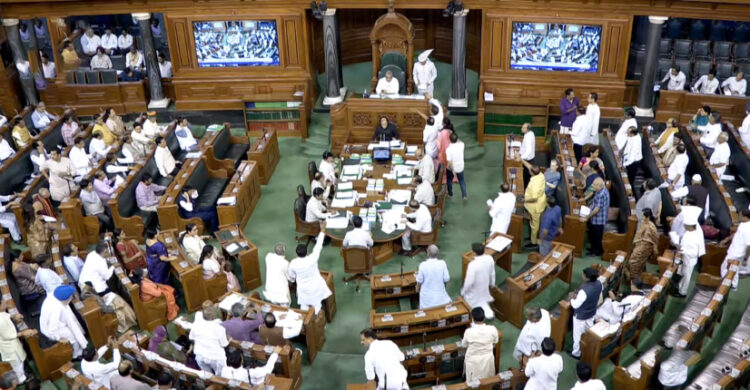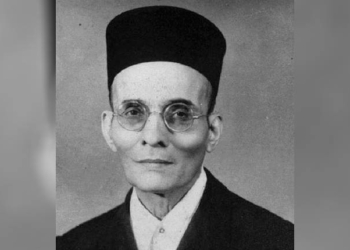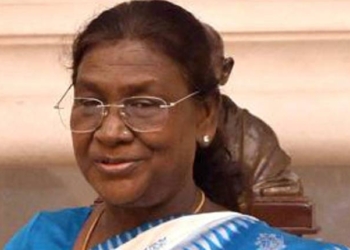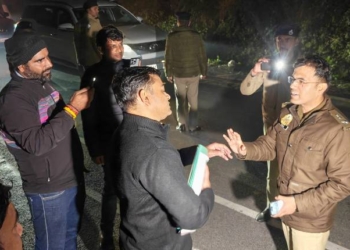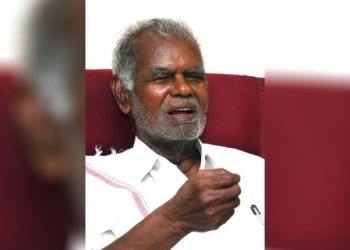New Delhi: As many as three of the total of six bills introduced by the government in Lok Sabha on Wednesday, received objections from the Opposition members.
When the Minister of State for Home Nityanand Rai introduced the Registration of Births and Deaths (Amendment) Bill, 2023 in Lok Sabha, Congress MP Manish Tewari opposed it.
Tewari said that he was opposing the bill for want of legislative competence on three counts. First, it transgresses on the right to privacy, second, it transgresses on the right to the separation of powers, and third, it suffers from the malady of excessive delegation.
“These are my three fundamental objections (to the bill),” the Congress MP said.
The bill was, however, introduced in the lower house.
National Conference MP Hasnain Masoodi opposed the introduction of the Jammu and Kashmir Reorganisation (Amendment) Bill 2023.
Masoodi said that he opposed the bill on the grounds that the Jammu and Kashmir Reorganisation Act is a constitutionally suspect law, which is currently under judicial scrutiny.
“Judicial scrutiny is being done by the apex court… even hearing has commenced. So, this is against the Constitutional propriety and Constitutional morality. You cannot amend an Act that is under judicial scrutiny and is a Constitutionally suspect law. The Constitutionality of Jammu and Kashmir Reorganisation Act is being examined by the Supreme Court and day-to-day hearing is scheduled to begin from August 2. It is better to stop the introduction of this Bill.
“I oppose the introduction on the ground that it is a Constitutionally suspect law and the Constitution does not permit the introduction of the Bill. That is my objection to the introduction,” he said.
The bill, however, was introduced in Lok Sabha by Nityanand Rai.
Revolutionary Socialist Party MP N.K. Premachandran objected to the introduction of the Mines and Minerals (Development and Regulation) Amendment Bill 2023, on the ground that it is against the principle of federalism and favours privatising atomic minerals.
“I strongly oppose the introduction of the Mines and Minerals (Development and Regulation) Amendment Bill, 2023. It is against the principle of federalism and it is for privatising the atomic minerals, mining and minerals separation, privatisation for big corporates. It will adversely affect the PSUs in the sector as it is for privatisation and for multinational corporations. It affects the security and safety of the nation. It is against the principle of federalism.
“It is in violation of the state government’s authority to give mining leases for the minerals separation and mining license. Do not give permission because it is unconstitutional and encroaches upon the states’ rights. I strongly oppose the introduction of this bill,” Premachandran urged upon the Speaker Om Birla.
Coal, Mines and Parliamentary Affairs Minister Pralhad Joshi, however, rejected Premachandran’s objections, saying that no objection can be raised on the legislative competence of the Parliament in this subject matter as through the bill, the government only intends to make certain amendments in the parent Act of 1957.
Joshi later introduced the bill.
Apart from these three bills, the government also introduced the Jammu and Kashmir Reservation (Amendment) Bill, 2023, the Constitution (Jammu and Kashmir) Scheduled Castes Order (Amendment) Bill, 2023, and the Constitution (Jammu and Kashmir) Scheduled Castes Order, 1956.
(IANS)




